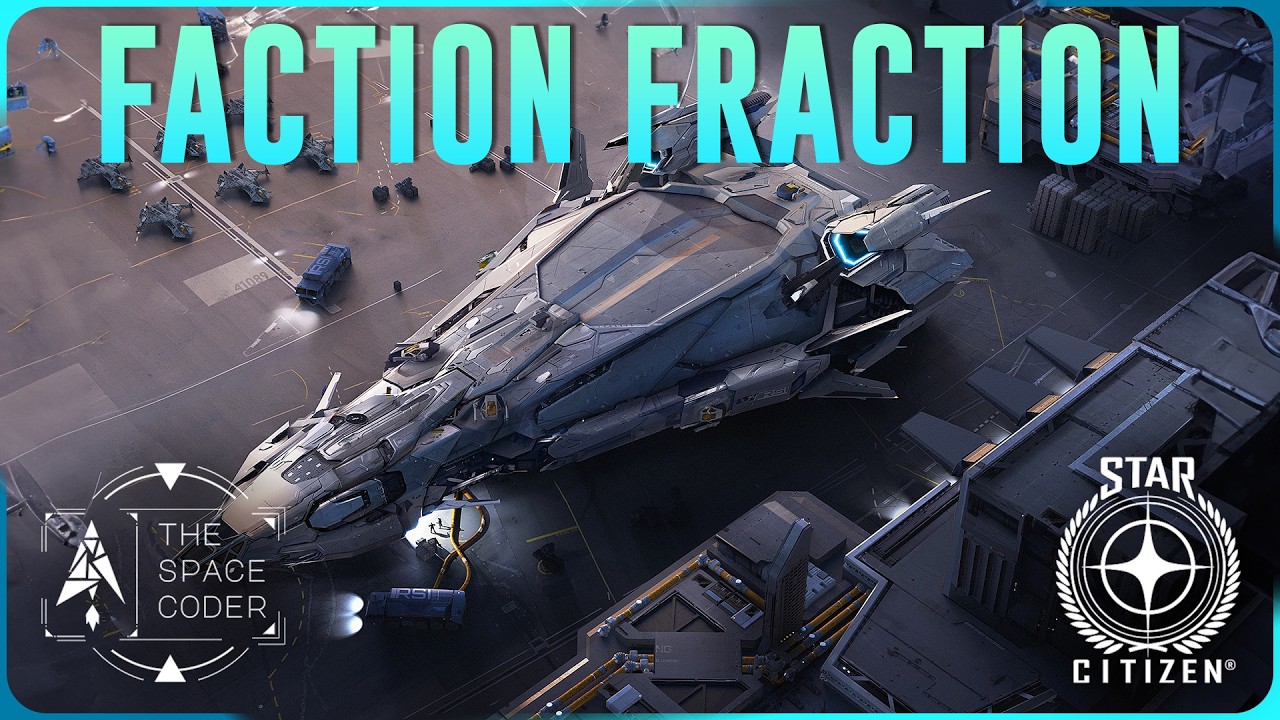The video explores the role of factions in Star Citizen, highlighting their impact on storytelling, player interactions, and the game’s dynamic universe, with examples from both the United Empire of Earth and smaller factions. It discusses the complexities of faction relationships, the influence of reputation systems, and the potential for varied gameplay experiences in different regions like Stanton and Pyro.
In the video, the content creator discusses the significance of factions in Star Citizen, exploring how they enrich the game world and provide players with diverse interactions. Factions are defined as groups operating within the game universe, which can range from large entities like the United Empire of Earth (UEE) to smaller homesteads. The creator emphasizes the importance of factions in creating a living universe, as they allow for storytelling and player engagement through various social structures and relationships.
The video elaborates on the characteristics and classifications of factions, highlighting their influence and longevity. For instance, the UEE is portrayed as a powerful and enduring faction with far-reaching influence, while smaller factions, such as a remote homestead, have limited impact and are more vulnerable to external threats. The creator also discusses how factions can exert influence through political, economic, and military means, using examples like Microtech Corporation and Ninetales to illustrate these dynamics.
The discussion then shifts to the number and types of factions that can exist in a given area, using Stanton and Pyro as case studies. In Stanton, a mix of corporate and outlaw factions creates a complex environment with various levels of interaction. In contrast, Pyro is depicted as a lawless region where factions vie for control through military means, leading to a chaotic yet potentially lucrative setting for players. The creator notes that even outlaw groups may seek some form of order to facilitate their operations.
The video also explores the intricate relationships between factions, explaining that alliances and enmities can be nuanced rather than binary. For example, a corporation may contract a security company, resulting in a complicated relationship that doesn’t necessarily enhance reputation. This complexity extends to player interactions, where players can gain or lose reputation with factions based on their actions, influencing their gameplay experience and available opportunities.
Finally, the creator expresses curiosity about how players will navigate the reputation system once fully implemented, particularly in different environments like Stanton and Pyro. They suggest that faction loyalty will be crucial in Pyro, where players may face consequences for their affiliations. The video concludes by inviting viewers to share their thoughts on faction warfare and player interactions within the game, emphasizing the potential for dynamic gameplay in Star Citizen as factions evolve and the reputation system develops.
